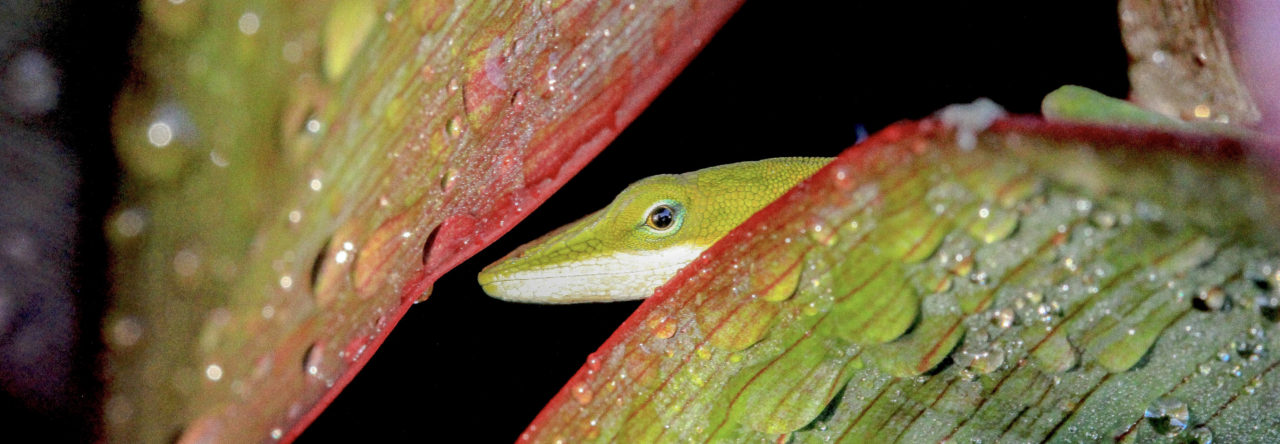
Frequently phenotypic evolution is rapid on islands, resulting in many ecologically diverse species. Most of what we know about the faster evolution on islands has been through the examination of morphological diversity. By utilizing species-rich Anolis lizards, Dr. Martha Muñoz and collaborators were able to examine the island effect with regards to rates and patterns of evolution through a different lens: thermal physiological trait diversity. Muñoz et al. examined the evolutionary dynamics of cold tolerance, body temperature, and heat tolerance in island and mainland anoles. They discovered faster heat tolerance evolution in the mainland lineages, and that island and mainland anoles are evolving towards separate trait optima with island lizards having a higher upper thermal limit. A higher optima and slower evolutionary rates are consistent with the Bogert Effect, in which organisms are shielded from selection because of behavioral buffering such as thermoregulatory behavior. Cold tolerance did not differ between habitats, not surprisingly due the fact that lower physiological limits cannot be behaviorally buffered against selection. Despite island and mainland anoles occurring in similar thermal environments, island lizards thermoregulate more. Consequently, the ecological opportunity (fewer predators and/or competitors) provided on islands may be reducing the costs of thermoregulation and slowing down, rather than accelerating evolution of certain traits. This study highlights the importance of other phenotypic axes that organisms diversify along in an adaptive radiation, such as physiological diversification, and that behavior can elucidate or drive patterns shaping evolution.


Leave a Reply